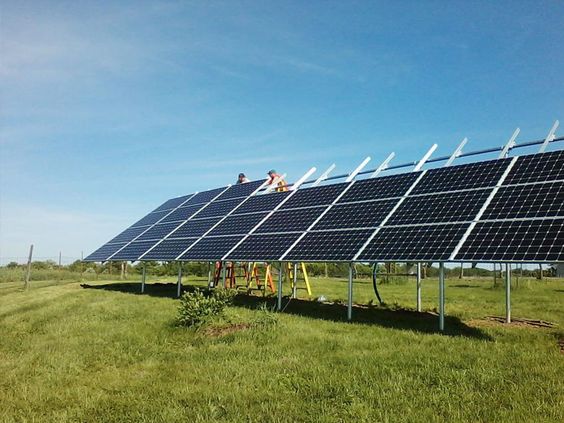
solar Cables in lahore, solar Cables in Pakistan,
solar Cables in Lahore, to harness the power of renewable energy, the demand for solar systems is on the rise. One of the most critical components of these systems is the solar cables that connect solar panels to inverters and batteries. In this comprehensive guide, we’ll explore everything you need to know about solar cables in Lahore, their importance, types, specifications, and where to find the best options.
Understanding Solar Cables
Solar cables are specifically designed to carry electricity generated by solar panels. Unlike standard electrical cables, solar cables are built to withstand environmental conditions, ensuring durability and safety.
Why Are Solar Cables Important?
- Safety: Solar cables are designed to handle high voltages and currents. They are insulated to prevent electrical shocks and fires.
- Efficiency: High-quality solar cables minimize energy loss, ensuring maximum efficiency in energy transmission.
- Longevity: Good solar cables are resistant to UV rays, weather conditions, and other environmental factors, making them long-lasting.
Types of Solar Cables
1. PV (Photovoltaic) Cables
PV cables are designed specifically for solar panel connections. They have excellent insulation and are resistant to UV light, making them suitable for outdoor use.
Characteristics:
- Heat Resistance: Can withstand high temperatures, typically rated up to 90°C.
- Flexibility: Easy to install due to their flexibility, which is crucial in varying installation environments.
2. DC (Direct Current) Cables
DC cables are used to carry the current from the solar panels to the inverter.
Characteristics:
- Low Resistance: Ensures minimal energy loss during transmission.
- Robust Design: Built to handle the specific demands of solar energy systems.
3. AC (Alternating Current) Cables
AC cables are used in systems where solar energy is converted into AC power for home use.
Characteristics:
- Higher Voltage Rating: Designed to handle the voltage levels typical in residential systems.
- Versatility: Can be used in various applications beyond solar energy.
Key Specifications to Consider
When choosing solar cables, consider the following specifications:
1. Voltage Rating
Ensure the cables can handle the voltage produced by your solar panels. Most solar cables are rated for 600V or 1000V.
2. Current Rating
The cables must be able to carry the expected current without overheating. Check the ampacity rating based on the wire gauge.
3. Insulation Material
Look for cables with high-quality insulation, typically made from materials like TPE (Thermoplastic Elastomer) or PVC (Polyvinyl Chloride).
4. Cable Gauge
The gauge of the wire affects its current-carrying capacity. Thicker cables (lower gauge numbers) can carry more current.
5. Weather Resistance
Ensure the cables are UV resistant and can withstand extreme weather conditions, especially in areas prone to heat and rain.
Solar Cables Suppliers in Lahore
Lahore boasts several suppliers and manufacturers of solar cables, providing a range of options to suit different needs.
1. Kohinoor Electric
Kohinoor Electric is a well-known name in the electrical supply industry in Lahore. They offer a variety of solar cables, along with expert advice on installation.
2. Waves Solar
Waves Solar specializes in solar energy products, including high-quality cables. Their products are known for durability and efficiency.
3. Pak Solar Systems
Pak Solar Systems provides a wide range of solar products, including cables. They focus on providing affordable and reliable solutions.
4. Solar World
Solar World is known for its premium solar components, including cables. They emphasize quality and performance.
Installation Tips
Installing solar cables requires careful planning and execution. Here are some essential tips:
1. Planning the Layout
Before installation, plan the layout of your solar system. This will help you determine the length and type of cables needed.
2. Use the Right Tools
Invest in quality tools to cut and strip cables. This ensures clean cuts, reducing the risk of damage.
3. Follow Safety Protocols
Always prioritize safety. Wear appropriate gear and ensure the system is turned off during installation.
4. Check Connections
After installation, check all connections to ensure they are secure and free from damage. Loose connections can lead to overheating and energy loss.
Common Issues with Solar Cables
1. Overheating
Overheating can occur if the cables are undersized for the current load. Always choose cables with the appropriate gauge.
2. Corrosion
Corrosion can occur in connections, especially if they are exposed to moisture. Use connectors designed for outdoor use to prevent this issue.
3. UV Damage
Not all cables are UV resistant. Ensure that the cables you choose are rated for outdoor use to prevent deterioration from sunlight.
Conclusion
solar Cables in Pakistan role in the efficiency and safety of solar energy systems. Understanding the different types, specifications, and where to source high-quality cables in Lahore will empower you to make informed decisions. As Pakistan continues to invest in solar energy, choosing the right components will ensure that your system operates at peak performance for years to come.

